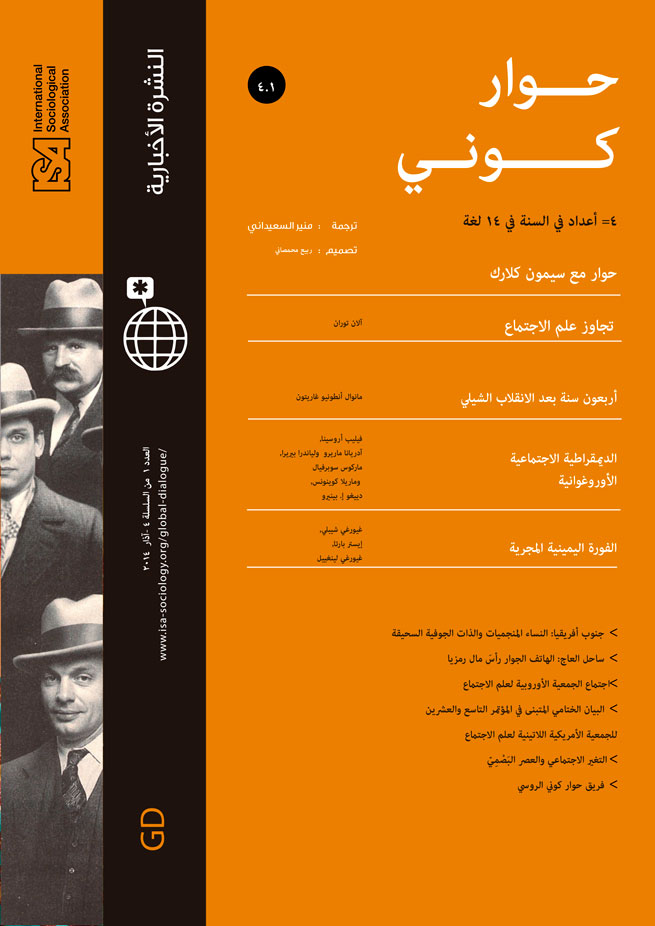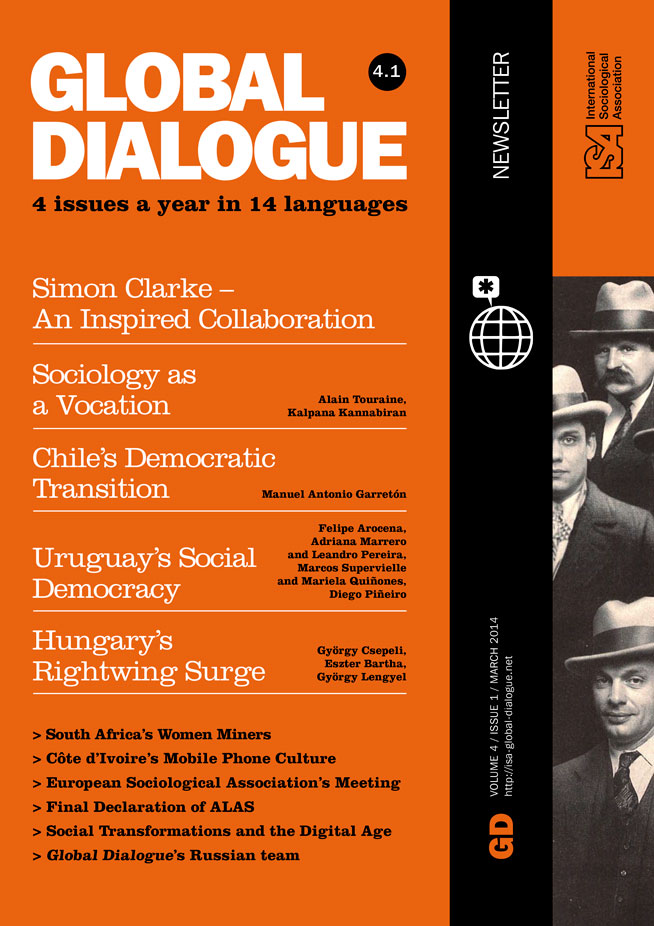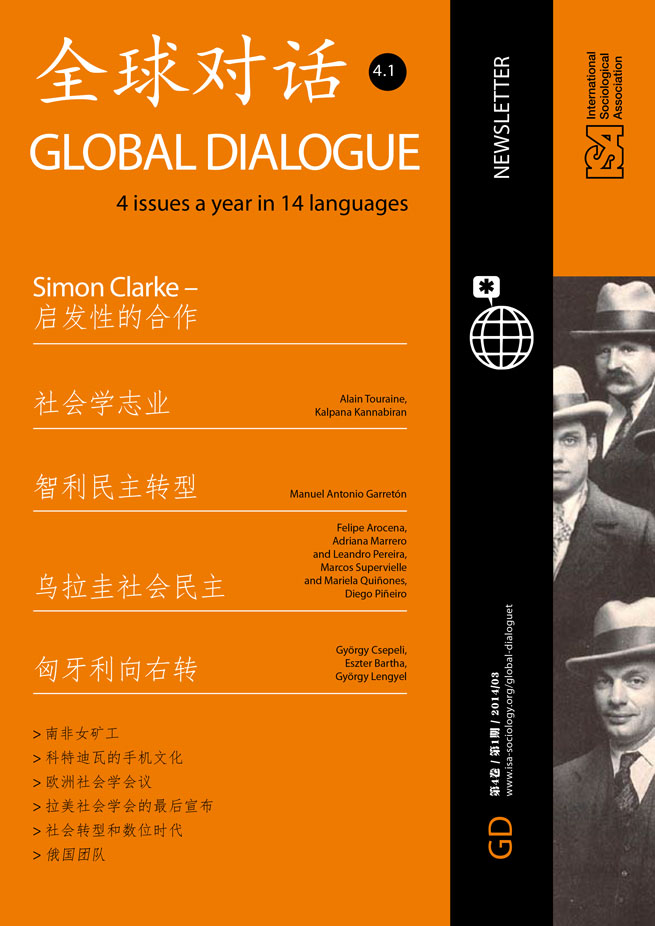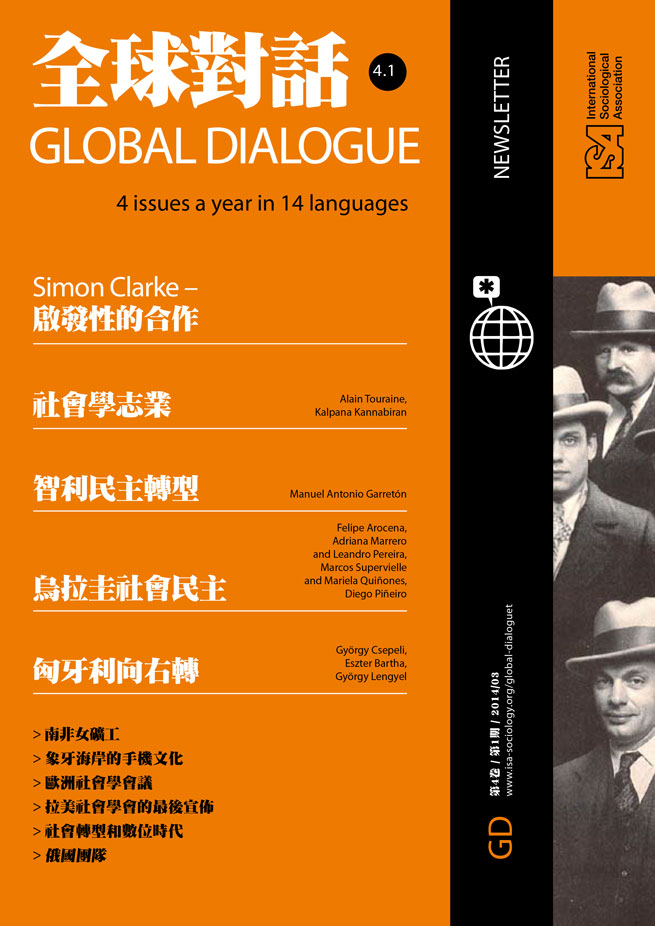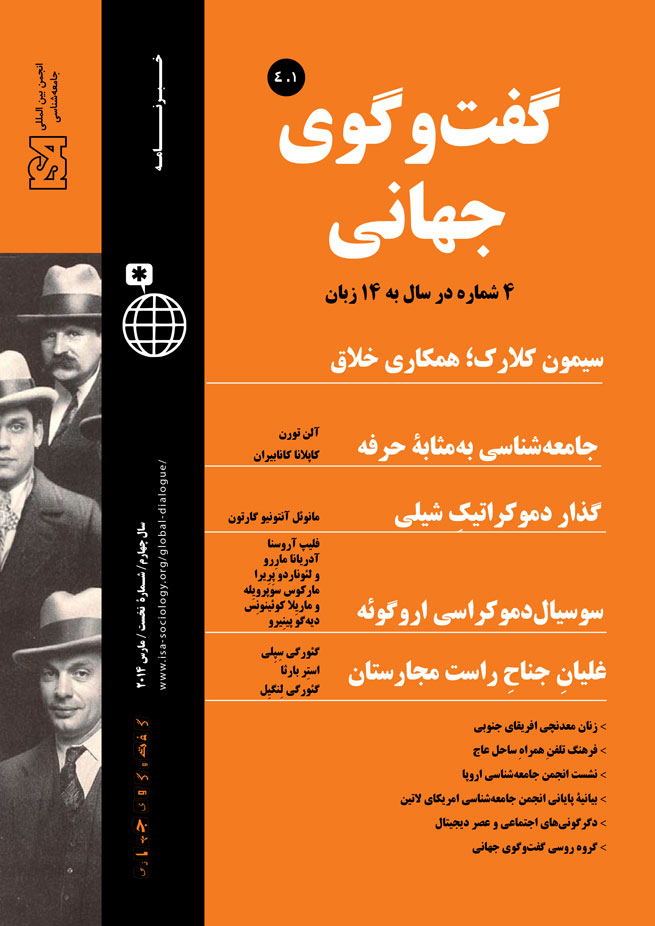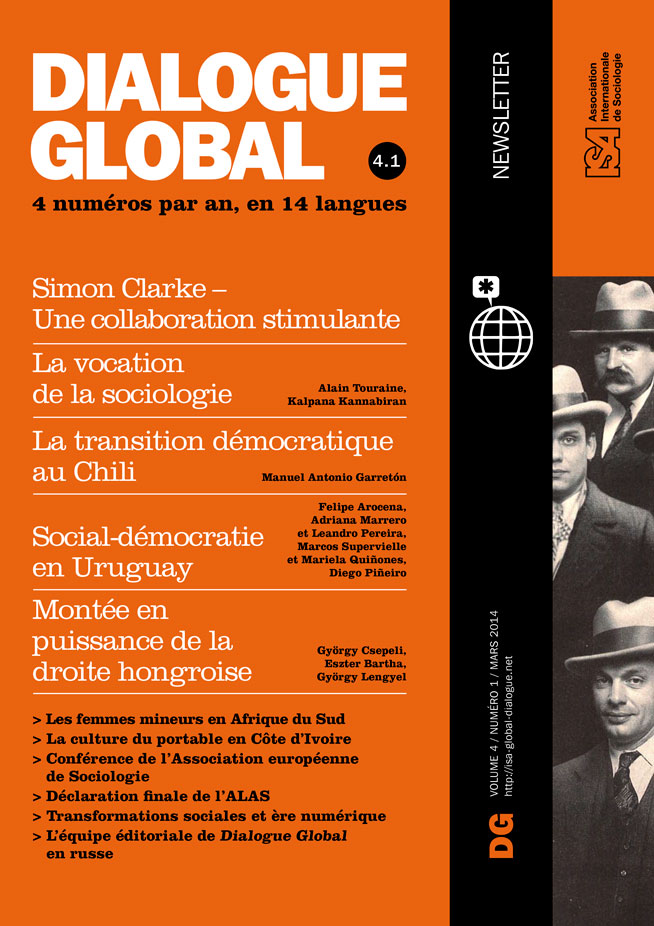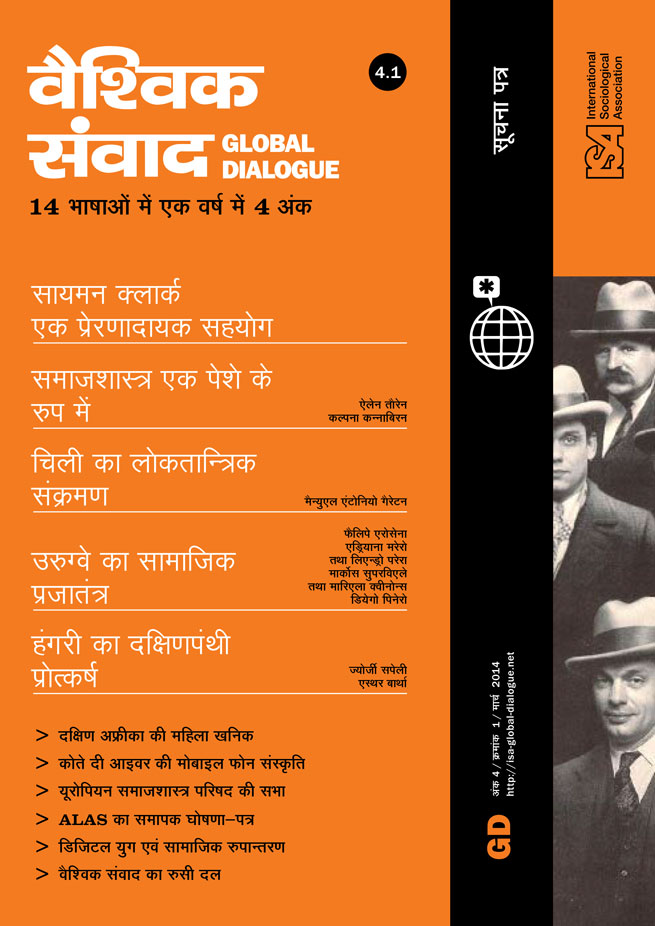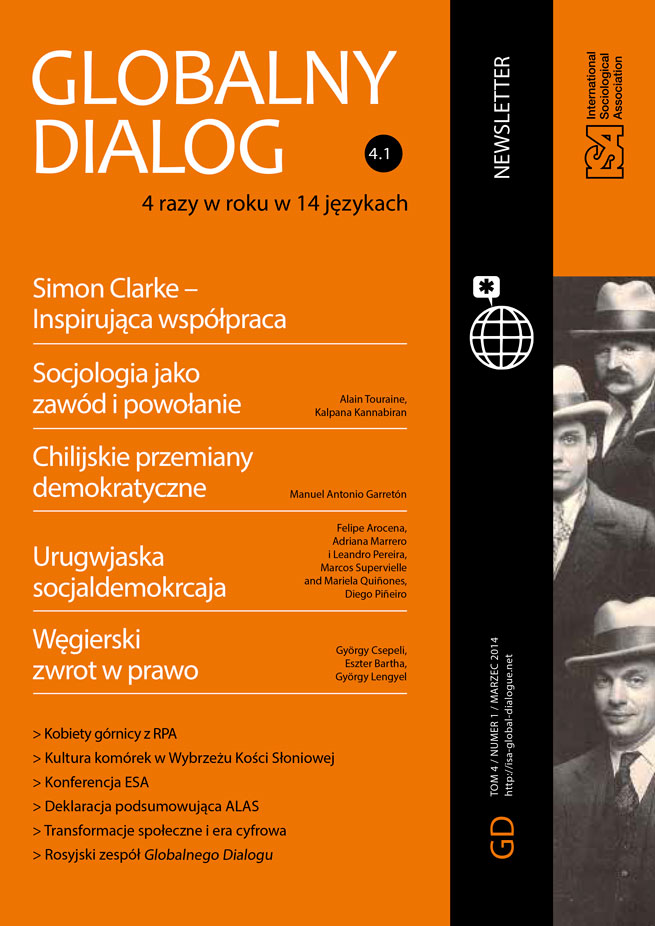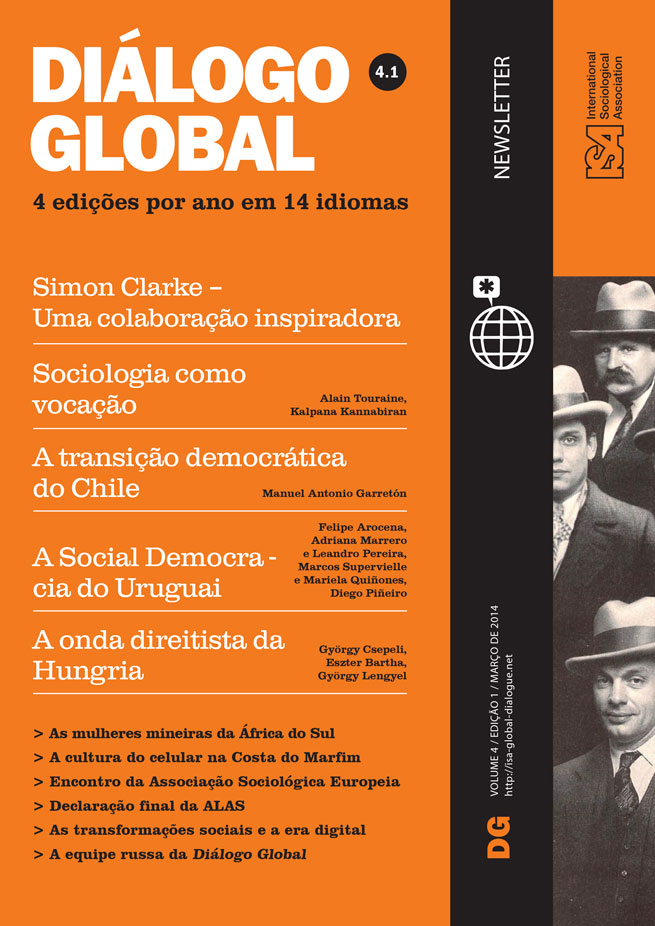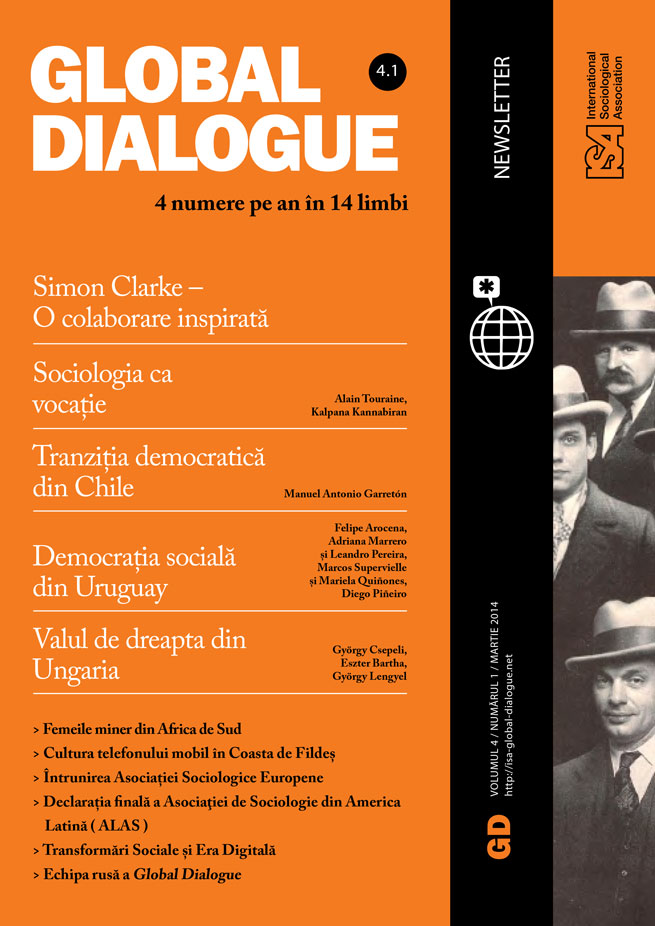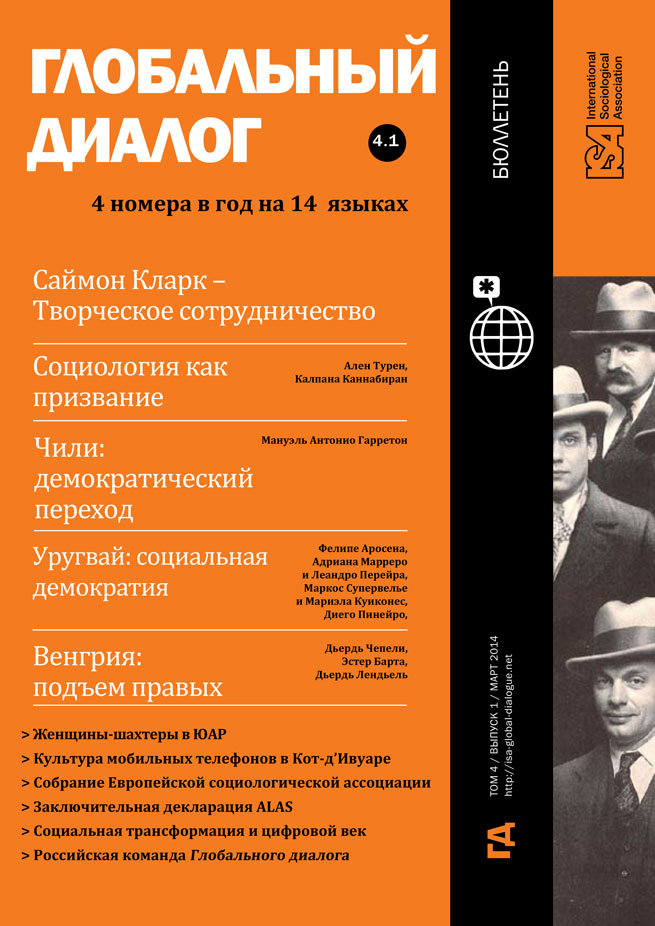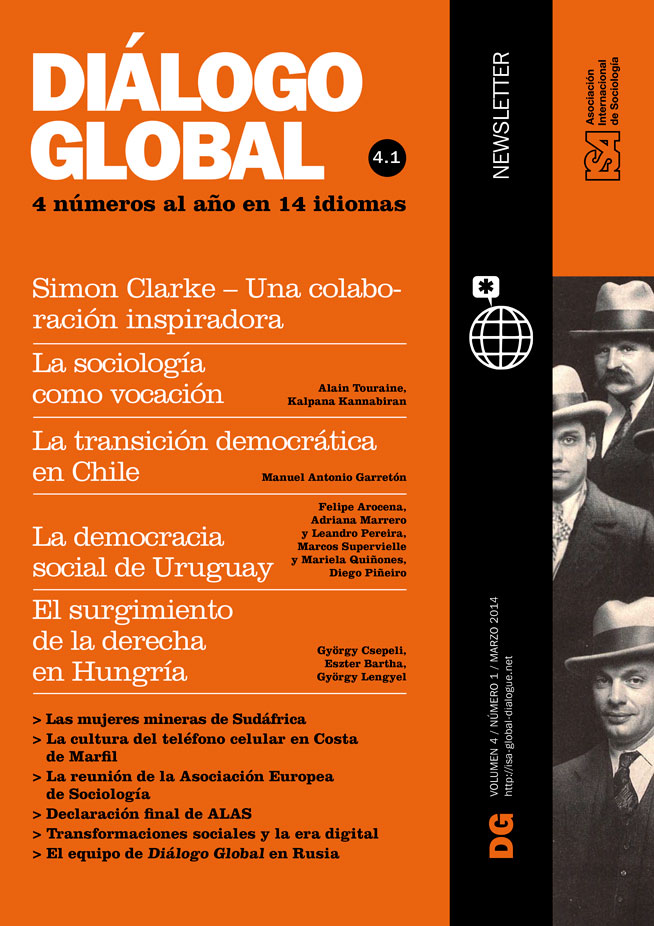Forty Years after the Chilean Coup: The Challenges of the Democratic Transition An Interview with Manuel Garretón (Part II)
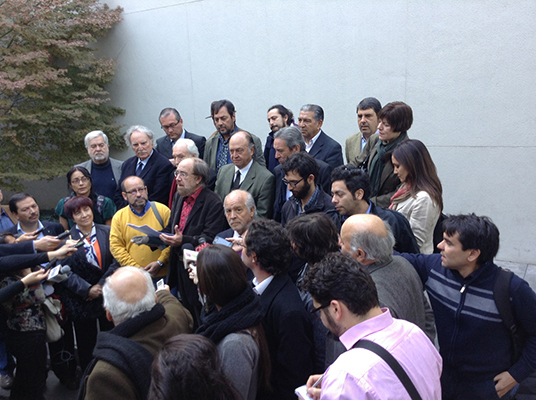
February 10, 2014
The interview with Manuel Antonio Garretón continues with a focus on the legacy of the dictatorship for democratic politics. Apart from his manifold academic activities Professor Garretón has led an intense political life, beginning with his election to President of the Student Union at the Catholic University in 1964. During the dictatorship he wrote and taught beyond the academy, training new generations who otherwise had little access to pluralistic education and information. He was actively involved in rebuilding the socialist democratic project, becoming a member of the Central Committee of the Socialist Party. After the dictatorship he participated in public debates about the transition to democracy, was advisor to the first Minister of Education, Coordinator of the Commission for Culture and member of the Commission for Higher Education. In recent years he has been engaged in the promotion of a new constitution. His political life has always been informed by the intellectual perspectives of a social scientist.
MB: In the previous part of the interview (GD3.5), you were talking about the failures of Salvador Allende and the Unidad Popular, especially the theoretical failures that contributed to their downfall. Let us now turn to the fall of the dictatorship. How could this happen? How did this happen?
MAG: Let us start with a clarification: the failures or problems of Unidad Popular did not cause the downfall but the conspiracy of the civilian right and the intervention of the military, all this with the support of the US. In 1980 the dictatorship introduced a completely new constitution that generated two political orders; one from ’80 to ’88 and the other after ’88. The first was the crystallization of the dictatorship, but with a constitution. The second was intended to be a strictly authoritarian civilian regime with military veto, what is called restricted democracy, protected democracy – whatever you want. But in order to go from one to another, and to keep the same leader in power – that is Pinochet – you needed to have some mechanism.
MB: This is where the plebiscite comes in, right?
MAG: Yes, they chose the mechanism of a plebiscite, but this created a problem. The opposition had developed considerable organizational capacity, first, in resisting and keeping organizations and people involved, and, second, in connecting different sectors of the opposition to one another and to social sectors in a rapidly changing context of structural transformation, of weakening unions, and so forth. The economic crisis of 1982-83 started a cycle of mobilization which had the effect of gathering people together, overcoming their fear and forging a political alliance, but without any idea as to how to get rid of the dictatorship. At the same time the communists, who were not part of the socialist opposition, wanted to get rid of the dictatorship through insurrection. Their attempt to assassinate Pinochet failed. Until the dictatorship called for the plebiscite to keep Pinochet in power, the opposition had no clear strategy. Although it was a very difficult decision, the opposition decided to contest the plebiscite. As one of the rightist civilian supporters of the dictatorship recognized, the plebiscite was the regime’s big mistake as it played into the hands of the opposition. The only thing they knew how to do was to win elections!
Despite all the tricks and power resources of the regime, the opposition prevailed. So the mechanism the dictatorship chose to perpetuate itself proved to be its undoing. As regards the opposition, as long as it was a matter of getting out the “no” vote, it didn’t matter that they had no program for the future.
MB: This is a strange way for a dictatorship to end, to commit suicide. What were the consequences of the plebiscite road to democracy?
MAG: One of the consequences was to get rid of the dictatorship but not its institutional framework or its economic model. That is very important. It is the only country in the world that after a long dictatorship, with a constitution created by the dictatorship, has not created its own constitution. It’s the only case in Latin America of a transition to democracy in which there was no Constituent Assembly.
But this was not inevitable. After winning the plebiscite and then the elections, the ruling coalition, the Concertación, could have gone further toward changing the political system without fear of authoritarian regression.
MB: And from such a change in the political system it could have moved ahead with change in the neoliberal economic model?
MAG: You cannot change the economic model without first changing the political one. For example, you cannot even create an enterprise of the state under the present constitution. Remember that this is the purest neoliberalism – purer than Thatcher – because it was accomplished under the dictatorship. Now, after 20 years you have what I call the success trap of the Concertación that has won 19 elections, has moved the country from $5,000 per capita to $15,000 per capita, and, as another mark of progress, today 70% of university students have fathers who didn’t have higher education. This amounts to an enormous transformation.
So the Concertación says, listen, we haven’t done badly. It has been a great success. So why should we make any fundamental changes? Why should we change the constitution? We have democratized Chile and that was, indeed, a very important transformation. Moreover, they claim to have corrected neoliberalism. But in correcting it they have consolidated it, re-established its legitimacy. In other words, they failed to break the ties of this transformed society to Pinochet, to the dictatorship’s socio-economic model and its non-democratic regime. The government may be democratic, politics may be democratic, but the regime is not democratic.
MB: What do you mean by that? What does it mean to have a democratic politics under an undemocratic regime? Sounds like a Leninist formula!
MAG: I mean, first, the constitution has never been democratically approved. So it is not legitimate in its origins. But second, the constitution established a political system where the minority which supported the dictatorship had equal electoral power to the majority that was against it. The electoral system makes it very difficult for a constituency to elect two candidates from the same party, even if the party wins the majority of the votes. And so the members of Congress are always evenly divided between two blocs, but to change the constitution you need a 75% majority. So it’s impossible. What, after all, is the constitution for? It’s for maintaining the economic model. It has one line about the right to life, and three pages about property rights.
MB: So what’s so bad about the socioeconomic order? All these indicators point to it being a success.
MAG: I think that it is a complete failure. Nothing that is good is due to the economic model. It’s due to the price of copper, to the policies of the Concertación attacking poverty. Solving the economic crisis is not in the model but in the counter-cyclical policies of the government.
MB: So the model is not so bad, it’s without effect?
MAG: No, no. In the 70s Chile had the second most equal income distribution in Latin America. In 2000 it had the second most unequal income distribution after Brazil (with Uruguay always the most egalitarian). The income distribution in Sweden, before taxes, is more unequal than in Chile, but after taxes, Chile’s income distribution is one of the worst in the world whereas Sweden’s is one of the best. Second, there is no other educational system more segregated than the Chilean one, whether by neighborhood, class, income, or any other measure. In 1970, to be sure, there were fewer students studying, but then 75% were in the public system, today the figure is less than 35%. So you don’t have a society, you have a market with some correction by the state. There’s an important break between politics and society. If the Chinese and the copper disappear, the country will disappear. The model is based on exports, on commodities, and on people’s debt. It has the worst labor relations laws in the world. You have 8% of the work force under collective bargaining. It is the only country without a policy toward indigenous people, the Mapuche. And it’s a country that loves anti-depressant medication.
MB: But weren’t you saying earlier that poverty has been eradicated?
MAG: If the standard measurement is used, poverty has fallen from 50% under the dictatorship to around 15%. But, you know, people who are above the poverty line today can be below the poverty line tomorrow. There’s no public system of social protection.
MB: OK. You’ve made your case. Now we must turn to the student movement. To what extent does it reflect these inequalities? And to what extent do students have a political project of their own?
MAG: There are different interpretations of the student movement. There are those who say it is a typical middle-class movement. Students are discontent because they have got a lot and all they want is more. Discontent is one crucial dimension of every social movement, but it doesn’t explain anything. If we are to talk about discontent, then it is the parents who are most unhappy because they have to go into debt to pay their children’s student fees.
The most significant demand of the students has been for public education which includes three elements. First, the system of public education must be majoritarian and hegemonic. You can have a place for private education but it must be regulated. Second, the law must forbid for-profit schools, and prohibit the present system in which the state subsidizes the private profit of entrepreneurs in the school system and even in higher education. The third demand is for free public higher education and without subsidizing private higher education. But you cannot make education free for everybody without a deep tax reform. If the children of the bourgeoisie receive free university education, like everyone else, that can only be because they are paying for it in heavy taxes. This means changing the economic model, which in turn requires changing the political system.
MB: So you’re saying this is a revolutionary demand?
MAG: I call it a foundational demand, different from demands for better conditions. It seems to me that the student movement in Chile plays the same role, without having access to government or parties, as do the movements in Venezuela and in Bolivia, namely to break the relation between state and society inherited from dictatorships. And so in that sense it is “revolutionary,” but it is not revolutionary in the sense of method. The other foundational aspect of the student movement is that, in my opinion, it is the first social movement in contemporary Chilean history that is not based on that historical imbrication with the political system that I mentioned above.
MB: So the privatized education is based on an economic model that cannot be changed without change of the constitution and the associated political system, and such a change, in turn, requires rebuilding the relation between politics and society. But, Manuel Antonio, who can possibly undertake this break – the one that already occurred in Brazil, Venezuela, and Bolivia – that will take us from a post-Pinochet market society to a more democratic one?
MAG: In Chile all historical projects were made through the connection of parties and movements: “industrialization” by the popular front (communists, socialists, and radicals), “agrarian reform” by Christian Democracy (church and peasant movements),“socialism” by the Unidad Popular (socialists, communists, and other parties). The fight against the dictatorship was made by the Concertación and the Communist Party but today that alliance is not enough to bring democracy, which requires reestablishing the link with movements. There have been moments when this seemed possible but they failed. A new possibility is now opened up with the recent presidential election. Michelle Bachelet was elected with a large majority and the first point on her program is a new Constitution. The combination of her promise with social mobilization could unleash a democratic, participatory, and institutional constituent process that could begin with a plebiscite. A new democratic constitution and a Constituent Assembly would provide new connections between politics and society, creating new parties and so on.
MB: Manuel Antonio, that was amazing – you covered the whole 40 years since the coup! That was quite an education for me as it will be for our readers. Thank you so much.
Manuel Antonio Garretón, Chile

